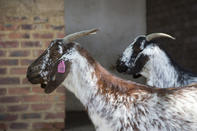Traceability is the ability to track any food or ingredient back to its origin. It will follow the path of production, processing and distribution up to retailing on the shelf of the supermarket. Traceability is important when it comes to public health.

Being able to determine the origin of products and ingredients is crucial to prevent the spread of any disease that may have been caused by a food product or ingredient.
Animal traceability means to be able to follow an animal or herd of animals during all stages - from birth in a certain area to slaughtering and processing of the carcass. Growing domestic and global demand for animal products has brought new opportunities for exporting animal products.
This has encouraged governments and livestock organizations in many countries to invest in developing infrastructure and processes for traceability systems to track animals and their products.
Animal traceability forms the basis of sanitary control systems in the production of food of animal origin. Therefore, traceability is the link between animal and human health as well as linking food safety and food quality.
Livestock Identification in South Africa
In South Africa, work is in progress to establish the National Livestock Identification and Traceability System (I-ITS SA) to link owners and animals, their location and individually registering them and record their movements on a central database.
Although the focus is on the commercial goat farming systems as well as the farming and slaughtering practices, the emerging farming sector is also included in the current proposal. However, several challenges have been experienced in the emerging sector including the lack of IT infrastructure.
The I-ITS SA can help in safeguarding the national livestock herd as it can help with disease prevention and readiness for disease outbreaks to ensure speedy control and containment thereby limiting damages to trade. (The tender for calling a service provider to develop the I-ITS SA, closed on 22 September 2018.)
By Marinda Louw